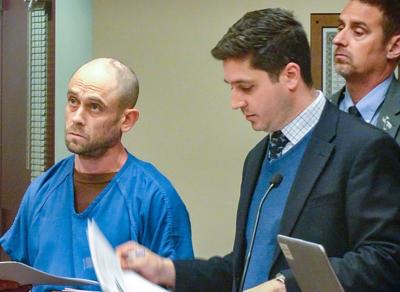Wisconsin’s criminal courts face a constitutional crisis that has been decades in the making. The culprit? The state’s refusal to adequately compensate the lawyers who make fair trials and the right to counsel a reality.
The Legislature created the Wisconsin State Public Defender office in 1977 to provide defendants with the representation they are required to have in our criminal courts, as affirmed by the U.S. Supreme Court 60 years ago.
Full-time public defenders employed by the public defender office provide representation to eligible defendants, and when they have a conflict of interest, the office finds private attorneys instead.
For decades, the Legislature made it virtually impossible for the public defender office to find private attorneys willing to accept cases by setting an unreasonably low compensation rate. For 25 years, starting in 1995, Wisconsin paid attorneys handling criminal cases $40 an hour, the lowest rate in the country and one that failed to cover even overhead expenses. Over a decade ago, the Wisconsin Supreme Court predicted that if funding wasn’t increased, “we risk a constitutional crisis that could compromise the integrity of our judicial system.”
Despite the court’s warning, the Legislature failed to act. This indifference forced the Wisconsin Supreme Court to order an increase in compensation rates to $100 an hour in 2020, but the damage had already been done. Lawyers had simply stopped practicing criminal defense.
The result: The public defender office can’t find attorneys to take criminal cases. And while about 60% of eligible defendants are represented by full-time public defenders, they need to find attorneys to represent the other 40%, which in 2012 meant finding attorneys for over 44,000 cases. Downstream, all this means that people accused of crimes go unrepresented, which has prompted a class-action lawsuit against the state of Wisconsin.
The public defender office is also struggling to recruit, hire and retain its full-time public defenders. The office is understaffed, and without the ability to offer competitive wages and benefits, the shortage of public defenders will only get worse.
As if that weren’t enough, the Legislature has limited access to representation by setting income eligibility guidelines that are unrealistically low. The public defender cannot represent someone unless their income falls below 115% of the federal poverty guidelines, a level much lower than most federal and state assistance programs. For example, in 2022, someone making more than $15,628, which is 115% of the federal poverty guidelines, was ineligible for assigned counsel in criminal court. At the same time, someone making up to $32,103 was eligible for the Wisconsin Home Energy Assistance Program.
Some people cringe at the idea of spending any more than the bare minimum on the defense of the accused. But there are two important things to consider: whether our criminal justice system is both accurate and efficient.
While every person accused of a crime is presumed innocent, many people are innocent. Consider the fact that last year about 30% of criminal charges were dismissed before trial. Of the people found guilty, the vast majority wind up pleading guilty. Those pleas typically result from a plea bargain negotiated by the prosecutor and defense attorney. Prosecutors report that defense attorneys play a crucial role in their decision-making process by providing information for their prosecutorial discretion. If we don’t adequately fund the criminal defense, we pay for it through wrongful convictions and unnecessary incarceration.
At the most basic level, a case simply cannot go forward without defense counsel. About 80% of the people accused of crimes in our country are too poor to hire counsel. So the State Public Defenders Office is responsible for keeping almost the entire justice system going. The average times to resolve criminal cases have been increasing in large part because of the inability to find lawyers.
Delays in court proceedings are not only costly, but they also defer justice for both the victim and the accused. One recent study found that for every dollar spent on public defense, a county in Michigan could save $6.31 on the cost of incarceration.
At a bare minimum, the governor and Legislature should honor the public defender office's proposed budget request that asks for an 18% funding increase. In addition, they should give the office the authority to establish compensation levels for assigned counsel that are closer to the market rate and high enough that attorneys are willing to take cases. And they should give the office the authority to establish eligibility guidelines that reflect the actual ability of people to hire counsel.
Despite decades of neglect, it’s not too late to make the investments in our public defense system necessary to achieve the noble ideal of a justice system where everyone is equal before the law.
It requires only that the Legislature recognize what the U.S. Supreme Court found to be an “obvious truth:” that lawyers in criminal courts are necessities, not luxuries.







